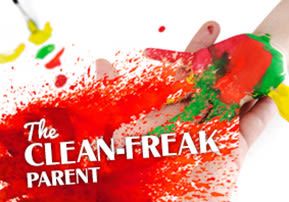
The Clean-Freak Parent
Children pay a high emotional price for mom's immaculate home. Mothers whose home is a museum-like showcase do so at the expense of their children's nerves...

Translated by Rabbi Lazer Brody
If you want a child that will either grow up to be neurotic or else turn-off to you altogether, then be a clean-freak parent! What's more important, the shiny kitchen floor or the shine of your child's soul?
When the child eats, instead of being nervous that he might get dirty, and then grumble about it later, just put on a bib. A mother accepts the first few times that her child gets dirty – she knows he’s a baby. But with time, she accumulates an impatience for messes, and she may, without realizing, yell at her tiny baby that he got dirty. But by utilizing this simple idea of a bib, she saves herself the burden and the exhaustion from constant messes and increased laundry, and she saves the child from the damage that rebuke does to his soul.
A child who doesn’t play or get dirty should be examined if something is ailing him.
There are righteous people who bless young couples with a blessing of, “May it be Hashem's will that you should have a messy home.” Obviously, they mean that the couple should merit to have many children…
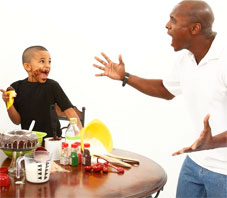 Sometimes, mothers are obsessively clean. Children pay a high emotional price for mom's immaculate home. Mothers whose home is a museum-like showcase do so at the expense of their children's nerves and emotional health. I've witnessed homes where everything sparkles, so sterile that they could qualify as a surgery room. Heaven forbid that a child should come into the living room of such a house with dirty hands! His mom considers that both a felony and a tragedy! It's a shame to think of how showcase-clean mothers seem to value clean carpets and spotless sofas more than their children's souls.
Sometimes, mothers are obsessively clean. Children pay a high emotional price for mom's immaculate home. Mothers whose home is a museum-like showcase do so at the expense of their children's nerves and emotional health. I've witnessed homes where everything sparkles, so sterile that they could qualify as a surgery room. Heaven forbid that a child should come into the living room of such a house with dirty hands! His mom considers that both a felony and a tragedy! It's a shame to think of how showcase-clean mothers seem to value clean carpets and spotless sofas more than their children's souls.
Obsessive cleanliness comes from a person's lack of awareness as to why Hashem gave him a house: Hashem gives houses (including the living room) for the people of the house to use and enjoy, in other words, to serve the needs of the family. The home is neither a showcase for the neighbors nor a museum piece. Parents who think like that might have a spotless house, but their child's soul will be badly damaged, Heaven forbid!
One mother I know has several children; she "spoiled" her youngest, gave him a little more freedom and didn’t scream at him as much as she did to the older siblings. There is a clear difference between the youngest and the others, for the youngest is relaxed and serene, with a joy of life, while the other siblings are emotional cripples, bitter and unable to cope with life.
A woman who is obsessively clean and neat makes emotional wrecks out of her children, because they are raised in a way that is neither healthy nor normal for them. They are restricted and not able to move freely. So, if a woman loves cleanliness, she should decide on one room or part of the house that is reserved for guests and special occasions, like the parlor room, but leave the bulk of the house for the children to live in and play, like the garden, porch, and bedrooms. There, they can frolic and have a good time. This also applies to fathers who are sticklers for order and cleanliness. They should make a moral inventory: What do you want, a clean, organized, military-type house like an army base, or normal children?
Eventually, parents can and should teach children to clean up after themselves, but first and foremost, children should have freedom to play and enjoy. Children who are restricted at home unleash at school, beating other children or doing mischief in venting their pent-up energy that they're afraid to release under the threat of the "military police" at home.
Children, in time and at the proper age, must learn hygiene, order, and neatness. But, one must realize that toddlers, even after toilet training, sometimes have accidents. Kindergarteners playing in sand boxes get full of sand, that's only natural! Boys playing touch football get grass stains on their pants. Why yell at them for doing exactly what they should be doing at their age? So what if there's another load of laundry? The important thing is that our children are happy and healthy.
A child who's learning to read and write is also capable of learning to try to keep himself clean while eating. If this is done gradually and pleasantly, the child will want to eat in an orderly fashion, and later on understand other concepts in keeping clean. A parent can’t shorten the road to cleanliness or to toilet training with commands and demands, which will only be counter-productive.
Children have not yet developed the rational intellect to understand that the parent is only doing things for the child’s own good. So when a parent makes forceful demands from the child, or all the more so, embarrasses or ridicules a child, the child begins to despise his parents, harboring bad thoughts and walking around in constant pain. A breech is created between parent and child. The child closes up, lines of parent-child communication are severed, and the parent-child relationship deteriorates.
Patience is the key word. Don't forget that your children are children.





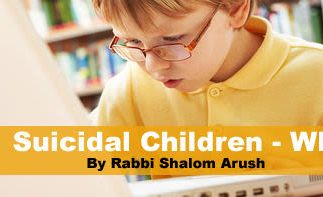
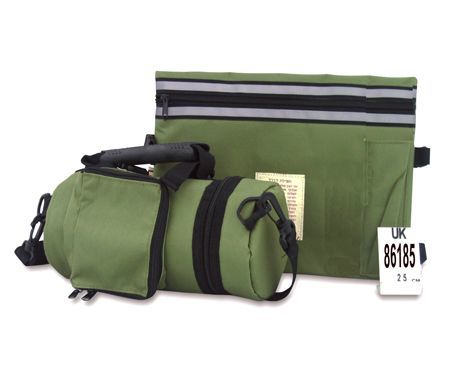

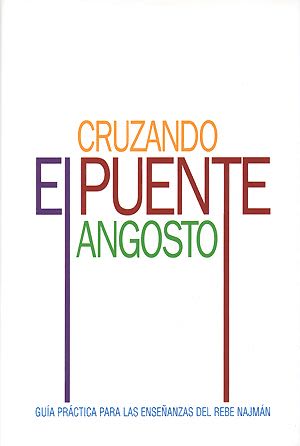
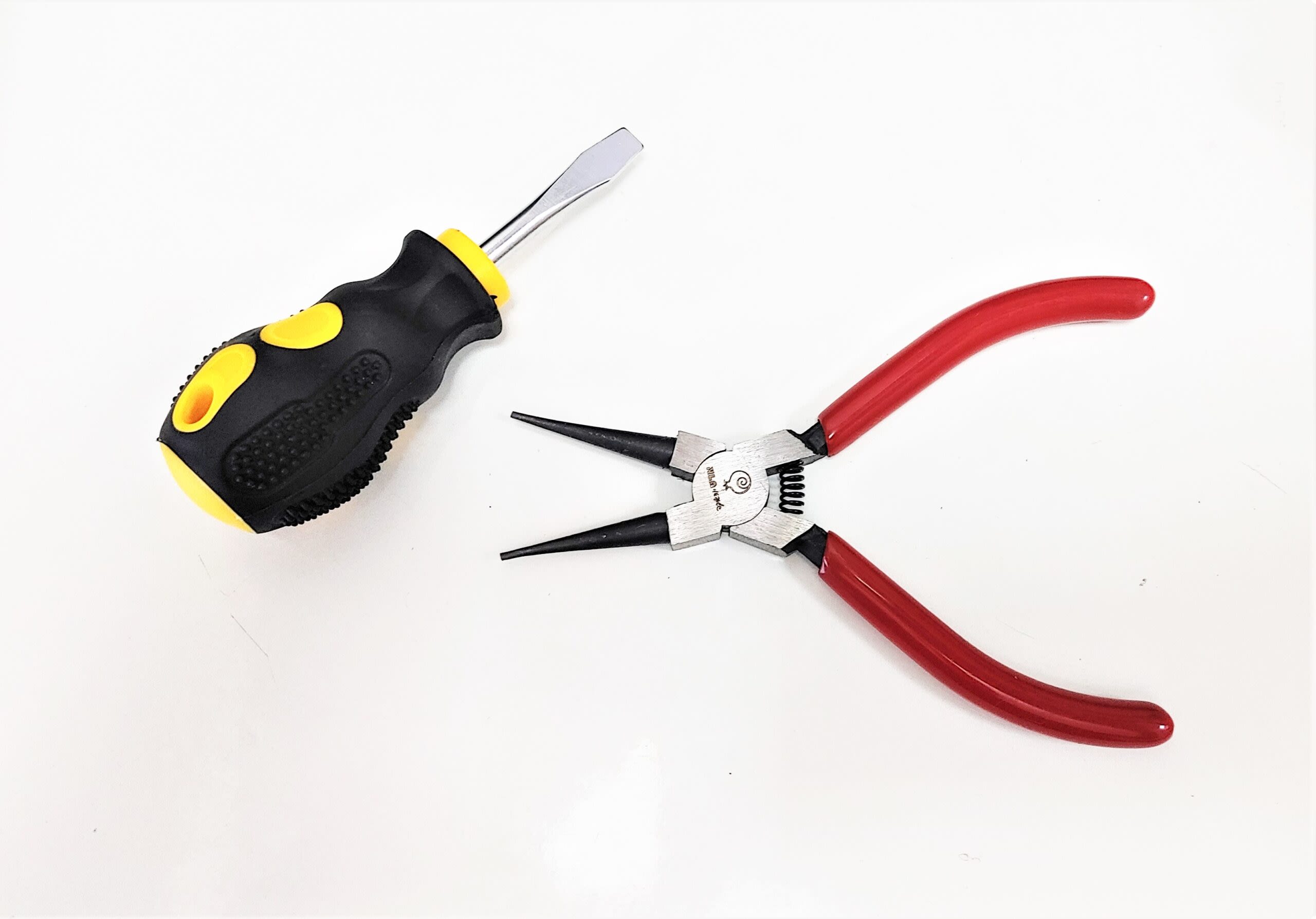
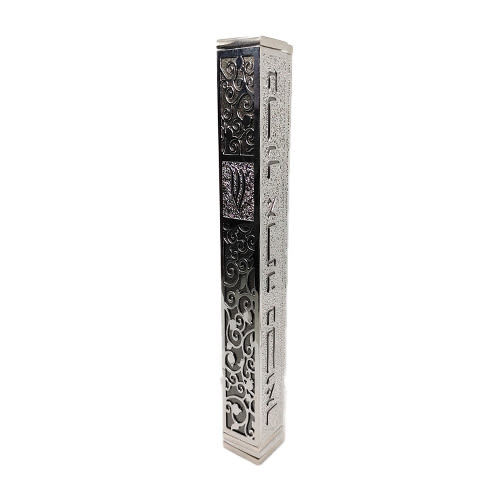
Tell us what you think!
Thank you for your comment!
It will be published after approval by the Editor.